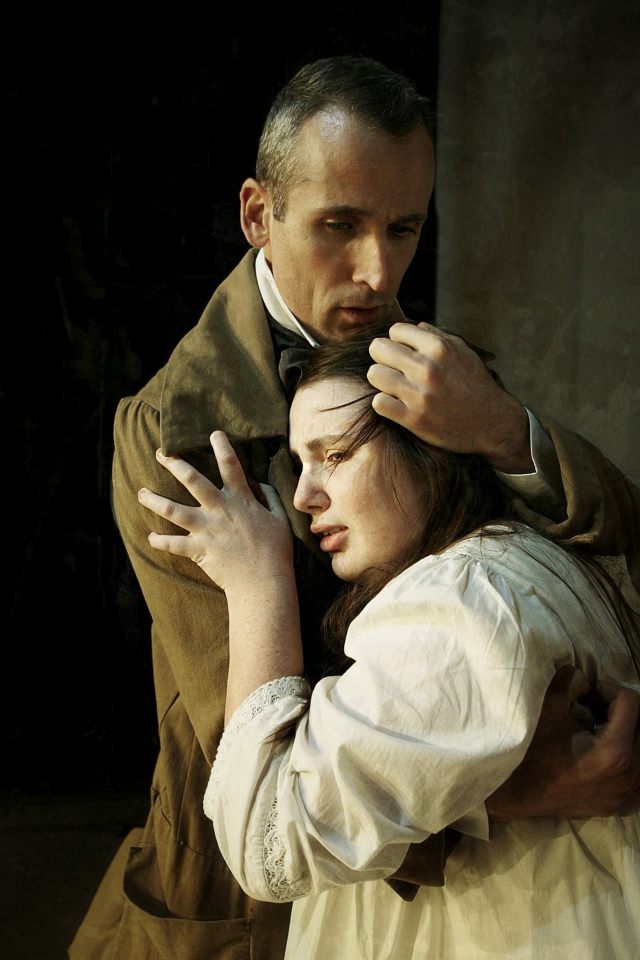- Theatre: Accidental Death of An Anarchist
- Theatre: Ein Komisches Talent
- Theatre: Gaslight®
- Theatre: Hansard
- Theatre: Home, I'm Darling
- Theatre: How to Succeed in Business...
- Theatre: I Love You, You're Perfect, Now Change
- Theatre: The Cat's Meow
- Theatre: The Crucible
- Theatre: The Duchess of Malfi
- Theatre: The Glad Game
- Theatre: The Last Noel
- Theatre: The Revlon Girl
- Theatre: Things I Know To Be True
- Theatre: Uncle Vanya
- Auditions: Audition for The Last Noel
- Auditions: Audition for Youth Theatre
- Auditions: Audition for Youth Theatre
- Auditions: Audition for The Cat's Meow
- Auditions: Audition for Things I Know To Be True
- Auditions: Audition for The Glad Game
- Auditions: Audition For Uncle Vanya
- Auditions: Audition for Hansard
- Auditions: Audition for The Duchess of Malfi
- Auditions: Audition for Accidental Death of An Anarchist
- Auditions: Audition for How To Succeed In Business...
- Lunchtime Theatre: Borne out with whalebone
- Lunchtime Theatre: Animating the Inanimate
- Lunchtime Theatre: Discussion of a local production
- Lunchtime Theatre: Lunchtime Christmas
- Lunchtime Theatre: From the theatres to the stars
- Lunchtime Theatre: Lunchtime Theatre
- Lunchtime Theatre: Lunchtime Theatre
- Lunchtime Theatre: Lunchtime Theatre
- Lunchtime Theatre: Lunchtime Theatre
- Lunchtime Theatre: Lunchtime Theatre
- Lunchtime Theatre: Lunchtime Theatre
- Open Evenings: Open Evening
- Open Evenings: Open Day
- Open Evenings: Open Day
- News: LMT at The Fringe!
- News: NANDA Awards 2025
- News: Youth Theatre Shines at NANDA Youth Fest...
- News: 2025/26 Season
- News: Under the Limelight: Backstage at the Vo...
- News: Plea for century-old theatre after drop ...
- News: 100-year-old Nottingham theatre ... laun...
- News: Lydia Marchant Came to Visit
- News: NANDA Awards 2024
- News: Discount Car Parking Offer
- News: 2024/25 Season
- News: Emmy win for our patron Matthew Macfadye...
- News: Golden Globe win for our patron Matthew ...
- News: Discount Food Offer
- News: NANDA Awards 2023
- News: 2023/24 Season
- News: Discount Car Parking Offer
- News: Lace Market Youth Theatre on the town...
- News: NANDA Awards 2022
- News: The Queen’s Award for Voluntary Service
- News: 2022/23 Season
- News: Discount Ticket Offer
- News: Covid Precautions
- News: 2021/22 Season
- News: A Virtual Vanya
- News: Nottingham Playhouse Home Grown Bursary
- News: NANDA Awards 2020
- News: Coronavirus (COVID-19): Season Cancellat...
- News: 2020/21 Season
- News: Coronavirus (COVID-19): Season Postponem...
- News: Sad and Amazingly Funny
- News: Absurd but relevant
- News: Where Are They Now?
- News: Foyer Refurbishment
- News: NANDA Awards 2019
- News: Youth Theatre win at NANDA!
- News: Hannah and Hanna on tour
- News: 2019/20 Season
- News: Adam Penford Visit
- News: The Big Wardrobe Move - Part 1
- News: Lace Market Theatre On Tour
- News: Henry, 14, shows the desire to step in a...
- News: New Wardrobe Premises
- News: Auditorium Refurbishment 2018
- News: NANDA Awards 2018
- News: Auditorium Refurbishment
- News: Remember when women were seen as 'little...
- News: Nanda Youth Festival
- News: 2018/19 Season
- News: World War II play loved by Churchill...
- News: Modern take on Charles Dickens' horror s...
- News: Oscar Wilde's An Ideal Husband at the La...
- News: Shocking true story of last woman to be ...
- News: Alan Bennett classic The History Boys to...
- News: Pride and Prejudice at the Playhouse?
- News: Launch of New Bar
- News: Is Guys and Dolls the best ever Musical?
- News: Success at NANDA
- News: LMT to Host World Premiere of New Englis...
- News: 20th Century masterpiece...
- News: 2017/18 Season
- News: Terry Pratchett's Carpe Jugulum to be pe...
- News: Comedy classic The Ladykillers will be s...
- News: West End hit that became Meryl Streep fi...
- News: Nottingham theatre kicks off 2017 with m...
- News: An alternative to panto...
- News: The Brontë sisters were chick-lit pionee...
- News: The Weirdest Title of Any Show You'll Se...
- News: Telling Tales...
- News: Love & Death
- News: Exhibition in the Studio
- News: Latest Sound Upgrades
- News: Success at NANDA
- News: Success at NANDA Youth Festival
- News: Steve Parry: A Tribute
- News: Lace Market Theatre on Tour 2016
- News: James Dean naked and 'lots of pretty lad...
- News: 2016/17 Season
- News: 2000 Facebook Likes!
- News: Art Exhibition During "Beautiful Th...
- News: Noel Coward comedy is Lace Market Theatr...
- News: Art Exhibition During "Present Laug...
- News: Discount Food Offer
- News: Art Exhibition During "The Pitmen P...
- News: New Roof!
- News: In August the Lace Market Theatre Goes D...
- News: Good Deeds Notts: A stroke of luck as Jo...
- News: Happy Jack: On Tour
- News: Success at NANDA!
- News: Nudity Features in Alan Bennett-style Co...
- News: Success at the NANDA Youth Festival
- News: Art Exhibition During "Dead Ringer&...
- News: Poltical Comedy Play is Anecdote to Gene...
- News: 2015/16 Season
- News: Bertolt Brecht Classic at Lace Market Th...
- News: Theatre preview: Bedroom Farce at Lace M...
- News: Lace Market Theatre stages the tale of a...
- News: Lace Market Theatre's One Act Play will ...
- News: It's a White Christmas at Lace Market Th...
- News: Art Exhibition During White Christmas
- News: Donation to Nottinghamshire NUM Ex and R...
- News: Lace Market Theatre tackles John Godber ...
- News: Darkly funny play at Lace Market Theatre...
- News: Lace Market Theatre commemorates WWI wit...
- News: The World of Professional Theatre has Re...
- News: Private Peaceful Collection
- News: Discount Food Offer
- News: Possibly the best set ever!!! The back s...
- News: LMT's comic, contemporary vision of rura...
- News: The horror of WW1 told in Lace Market Th...
- News: Success at the NANDA Youth Festival 2014
- News: NANDA Youth Festival
- News: VisitEngland Tourism Superstar Awards 20...
- News: 1000 Facebook Likes!
- News: The Return of Open Mic Night
- News: Art Exhibition by Neil Duckmanton
- News: Online Booking Problems?
- News: White Christmas Early Bird Offer
- News: New Website!
- News: Anne Boleyn Opens to Rave Reviews
- News: Nottingham Post interview Gordon parsons
- News: Murder Mystery Night is Big Success
- News: Nottingham Post interview Graeme Jenning...
- News: RSC Open Stages
- News: Nottingham Post Interviews Max Bromley
- News: Discount Food Offer
- News: Costume Commissioned by the Courtald Gal...
...according to director of Nottingham play
The Brontë's have become icons of feminism; authors of two books that are forerunners of chick lit and feature some of the greatest Romantic heroes and heroines of the 19th century.
Almost every A-level English Literature student has read either Charlotte Brontë's Jane Eyre or her sister Emily's Wuthering Heights; fewer know Anne's The Tenant Of Wildfell Hall, a passionate attack on the attitudes of a society that forced both boys and girls to conform to fixed gender stereotypes.
Still fewer know anything of Charlotte's other novels or Emily's poems, many of which were edited by Charlotte after her sister's death to make them more acceptable to the Victorian public.
Three daughters and one son survived childhood. The girls spent most of their lives in the parsonage in a remote, unhealthy, industrial Yorkshire village, looking after their nearly blind father, with little contact with the outside world beyond largely unsuccessful spells as governess or teacher.
When they eventually published a volume of their poems, it had to be under male pseudonyms.
Charlotte, the eldest, was desperate to be known and terrified of anything that might damage their reputation; Emily wrote to escape from the pressures of life and didn't care about being published; Anne was concerned about inequality and hoped to change society.
And then there was their brother, Branwell, perhaps best known as the smudge on the famous portrait he painted of his sisters where he removed his own image, popularly believed to be because he felt himself not worthy to be in the same picture as them.
Polly Teale's play, Brontë, doesn't aim to be another biography (in some ways it's as accurate as a Shakespeare history play) but explores the tensions between the siblings as they try to express their different forms of creativity.
How did the sisters manage to write and publish at all?
How did they survive life together with such different agendas? How did they deal with their repressed sexuality?
And how did they cope with both the fame and accusations of indecency?
Although Brontë is often thought of as a feminist play (I believe I am the first male to direct it) there is a lot of sympathy for Branwell, who is equally trapped by conventions.
Encouraged by their well-meaning father (who was remarkably enlightened in some ways) to be the "success" of the family, he soon realises the modest limits of his abilities and sinks into alcoholism, drug addiction and an early death.
Not a standard biography, more a series of scenes that highlight the ambitions and emotions of all the family.
It's full of physical action, some of it of a fairly adult nature, brought to life by a superb cast.
Above all, the play is an exploration of how we handle the tensions between our emotional life, our creativity and society's expectations – plus the odd moment of humour.
Read the original article here.












